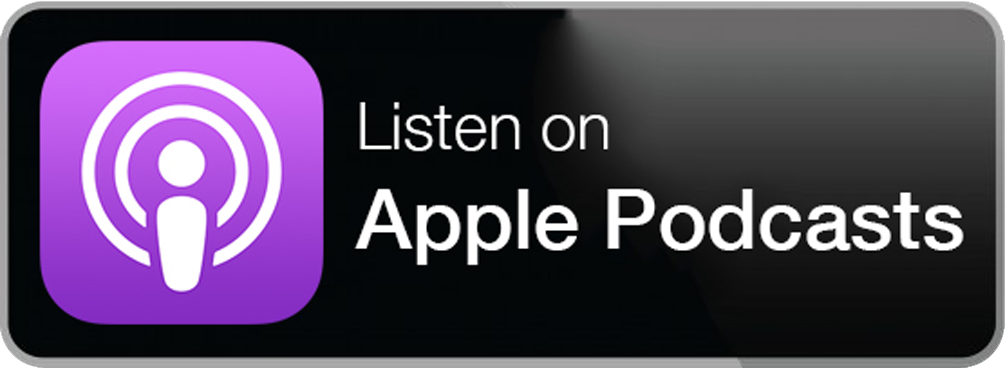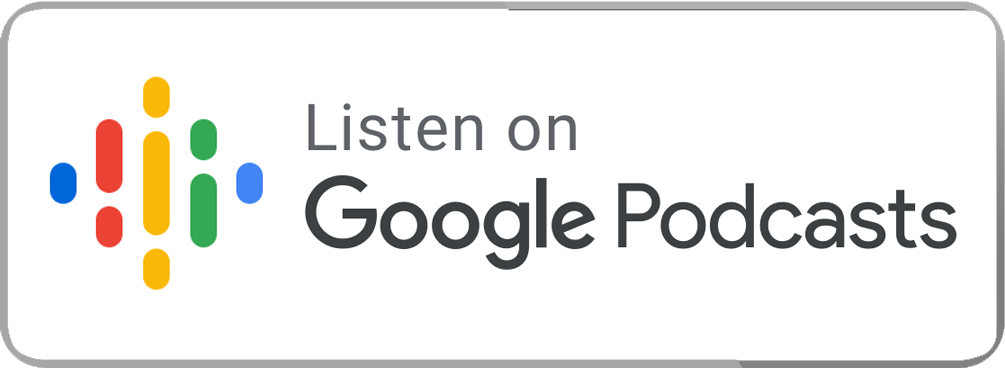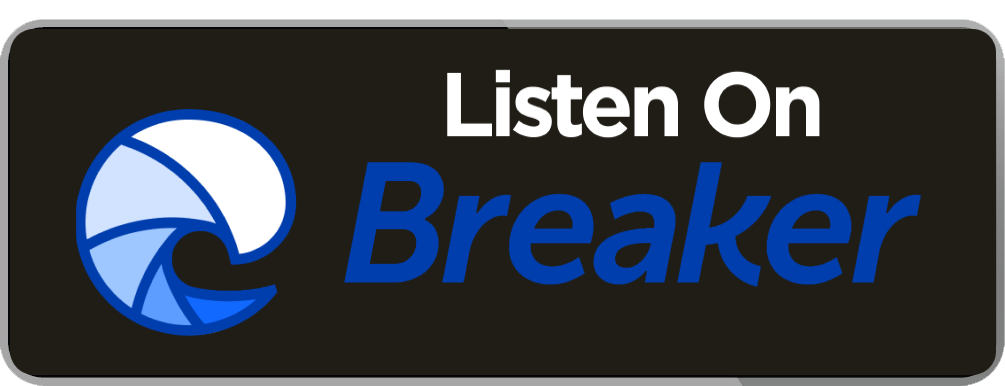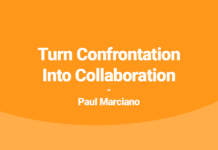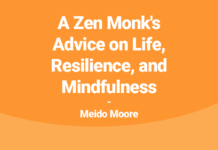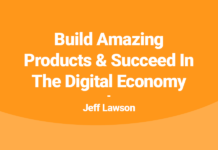Dan Schawbel is a New York Times bestselling author, Partner and Research Director at Future Workplace, and has been recognized on several lists including Inc. Magazine’s “30 Under 30”, Forbes Magazine’s “30 Under 30”, Business Insider’s “40 Under 40”, and BusinessWeek’s “20 Entrepreneurs You Should Follow”. His new book is Back to Human: How Great Leaders Create Connection in the Age of Isolation.
Transcript:
Kevin Kruse: Today on the show, I talked to a millennial wunderkind who says technology's gone too far and we need to get back to fostering true human connection. Should we all be putting our phones in the middle of the conference room table before we start our meetings? Should we do like France and outlaw after hours emails? And we discuss what shocking research he uncovered about the downside of working remotely. Our quote of the day is from Albert Schweitzer. “We're all so much together, but we are all dying of loneliness.”
Our guest today has been called the Tom Peters of the millennial generation. He's a New York Times bestselling author, partner and research director at Future Workplace, founder of both Millennial Branding and Workplace Trends. His two previous books are Promote Yourself and Me 2.0. He's been recognized on several lists including Inc Magazine's 30 under 30, Forbes 30 under 30, Business Insider's 40 under 40, Business Week's 20 entrepreneurs you should follow, and as one of Workforce Magazine's game changers. I'm suddenly very envious of all these lists by the way, but I have hope. I'm hoping someone starts a 50 under 50 list. Maybe I got a shot at that one. Or hey, I'll take 60 under 60. I'm not picky. Anyway, his new book is Back To Human: How Great Leaders Create Connection In The Age of Isolation. Our guest is Dan Schawbel. Dan, welcome to the show.
Dan Schawbel: So happy to be here, Kevin.
Kruse: I mentioned in the bio your book, Back To Human, like what's the big idea? Why was it important for you to write this book now?
Schawbel: A few reasons. First, every book I write, this is my third, I'm trying to help people my age get ahead in their career. So Me 2.0 was college to first job, Promote Yourself was first job to management, and this is a leadership book because half of people my age, you call us millennials, have a manager title and above and about 5% or so have a director title and above. So they're new into management. They have more responsibilities, they lack coaching, they feel isolated because of their technology use and because while half have a management role, it's still new to them. They don't know everything and so they're trying to figure that out. And so that's part of what has gone into this book.
The other thing is my first book, Me 2.0, is at the height of the web 2.0 movement. And so I think right now we are getting back to human. The pendulum is swinging the other way because people, regardless of who you are and where you're located, human connection is important to all of us. If we think of Maslow's hierarchy of needs, after safety and shelter and food, we really need the human connection in order to feel accomplished and fulfilled in our lives. And so for me, regardless of who you are, you have 24 hours in a day, you pay taxes, you live and you die, and you all have the need to connect. And we want community. We want to be around other people. We want to feel like we belong to an organization, to our community and that will never change. And so this book is a reminder that human connection is important in the age of isolation and technology and will always be more important.
And it's not like we're going to wake up in 20 years and there's going to be less technology. We're heading into a world where more companies are adopting artificial intelligence. There'll be more consumer products revolving around artificial intelligence, machine learning, virtual reality, augmented reality, more technology that gets more and more personal. Like in Sweden, they have chips that go into your hand. And so when you go into work, you swipe your hand and that gives you an entry to your workplace and then you swipe to order lunch. Like it basically corporations monitoring employees, and Amazon and other companies are starting to do this now in America. So we have to be wary about how technology is controlling and how we're being addicted to this technology because that's Apple and Facebook and all these companies' business model, and we have to really take control of our lives both professionally and personally.
And this book will help people do that through research. I conducted a research study in partnership with Virgin Pulse of over 2000 employees and managers in 10 countries. There's a self-assessment called WorkConnectivityIndex.com, measuring the strength of work relationships. There are stories from 100 young leaders at top companies. There are activities, exercises, tips, just about everything you can imagine in this book. And the reason why I put in all this effort is because I know this is important to people and I know that it's very easy, regardless of your work situation, to feel isolated and lonely. And lonely has the same health risks as smoking 15 cigarettes a day, and same reduction of life, and same harm as the obesity epidemic. So we have to start to connect more and not use technology as a crutch, not think that technology is going to solve all of our problems, that we control our behavior and we have to do something about it and make time for others.
Kruse: You mentioned all that cool technology that has a plus and a minus coming out around the world. I just read something that blew my mind, not in a good way. That there's a company, I forget their name, and they've installed heat sensors on the bottom of the desks so they know when the employees are seated there or not. Now probably half our listeners are saying, “Hey, at least those employees have desk. Like we don't even have spaces to call our own anymore.” And the article was talking about how with AI, now companies, they don't want a dozen employee engagement points. They want a million points on how long is your commute to work, what time do you arrive at your desk, how often do you get up from your desk? Like all these little data points and that's pretty scary.
Schawbel: I think it's too much. I think that at the end of the day, we have to treat people like adults, and everyone is different in their own way. We're all human. We all have the need to connect. We all have to use technology to get ahead in our careers at this point in today's world. But at the same time, the way you learn is different than the way I learn. The type of space I need in the workplace could be different than yours. Maybe I like working at a lounge or maybe I like working at home. People learn through mobile technology. Some people want in-classroom learning. So we have to provide for everyone. Everyone learns and operates differently, so we have to account for that at scale and I think that is one of the big challenges I see in corporations right now and I think that regardless of the technology that we have, we have to make room for social connections.
So one of the big things I found in this study was that only 20% of companies offer off-sites, and social activities, and ways in which people can collaborate on different projects across departments. Yet socialization is the most important thing for creating engagement in a healthy workplace. So that's what employees are looking for. So if employees are looking for that and they're not getting it, and because we live in a very decentralized workplace right now where people are working from everywhere, which is great because they get freedom and flexibility, at the same time, they can be isolated, lonely, and have weaker relationships. Like technology has created the illusion that we have a lot of friends, Facebook friends. Technology has created the illusion that we're so connected, yet in New York, I would say I feel lonely on occasion and isolated because you can be in the subway or walking on the street, you can be in an office, a co-working space and be around so many people, but no one at the same time because people might be physically there, but not mentally, spiritually or emotionally.
And so it's made us to believe that we're more connected and happy and things are great, but at the same time you can run into different traps. You can run into traps in terms of how you get information. If you just follow the same people, you're not getting the diversity to help challenge your mind. If you're only tweeting and putting out Facebook posts and texting, then the relationships you have are weaker, which is going to make you lonely even though you feel like you're putting effort into those relationships. It's not the type of effort that translates into deeper connection. So it's really tricked us and it's made us a little lazy in terms of how we operate socially in the workplace and at home. So I think it's more important than ever before we use technology the right way, right?
So after interviewing the hundred leaders, the conclusion is technology is a double edged sword. It can be good or bad depending on how you use it, which might seem obvious. But think of that in practical measures. If one of your employees is late to a meeting, a text makes sense or maybe even a phone call, right? But in the meeting everyone needs to be present. So what I'm seeing more and more leaders do is put their phones in the middle of the table. There is a leader I talked to that even in his bedroom with his wife, they have a rule that the technology doesn't enter the bedroom.
Kruse: Good rule.
Schawbel: So it's almost about self-monitoring. And there's rescue time, which is a great tool which shows you how much time you're spending on different social networks, right in this app. And even Apple now is building that in to the new iPhones, and the new iOS. And so I think that self-regulation is important as well as self-awareness. Like here's something really interesting, the number one thing that gets in the way of human connection in the workplace is email, yet a study in the Harvard Business Review found that one face to face conversation is more successful than 34 emails back and forth. Meaning that people can get very confused and misled through email. There can be a lack of understanding, which is what we all fear.
But if you walk over and meet someone in a huddle room, in a lounge, in their office, it's much easier to convey what you mean to them instead of praying that people understand you through email. So email can be good for other things, like as an update to your team, but when it comes down to, let's say conflict resolution, if you think you're going to solve a big conflict between you and a coworker by text, you're making a massive mistake. And it's really interesting, even in meetings, the average amount of texts sent during a meeting is about four or five. So people in a meeting aren't even present and it's disrespectful too.
If you're talking with someone and you're giving a presentation to your team of 20 and people are texting, it's almost like they care more about what's going on on their phone and who they're talking to who are not even in that meeting than you and what you have to say. That's harmful to work relationships. 7% of the global workforce has zero friends at work. Half of the global workforce has five or fewer. Yet we spend so much time at work. A third of our lives is spent at work, so how can we not look at our coworkers and our team and want those relationships with them? And I interviewed Richard Branson last year, and Richard Branson said if you have a lot of friends outside of the workplace, you should have an equal amount of friends in the workplace. And what is work now? I think work right now is what you do and who you do it with. I think that that's really it. There's actually nothing else besides that and hopefully underneath all of that is a set of values and a mission.
Kruse: One of the most surprising things I saw was that you discovered that the remote workers, the turnover, like the retention is lower than people that are working in the office. So tell me about that. I'm assuming you think it's because they're not making these connections.
Schawbel: To me, this is the biggest finding to come out from the book, and it connects the most with how I work because I've worked remotely for eight years. Everyone talks about the positive aspect of working remotely. You have the freedom and flexibility to work when, where, and how you want. No one talks about the negative side, which is the isolation and loneliness that can happen because you're not getting enough face time. And what we found was a third of workers globally work remotely, yet two thirds are disengaged and feel lonely as a result. And so the big finding was that if you work remotely, you're much less likely to want a long-term career your company. So working remotely impacts tenure.
And to me that is a big deal because I think about it in my head. If I didn't see my business partners and my team for a year, it's over. I'd be on to the next business. I've even told them that too. It makes sense, right? Because I have less of a connection to them and this matters even more to people my age. We view our coworkers as our work family and our manager as our work parent. It's much easier to leave a company when you have a bunch of acquaintances than people you actually care about and who care about you.
And I think what we're entering into, we're entering into a world where people want to bring their full self into the workplace, which means if they have personal problems or mental health related issues, that's coming into the workplace, so mental health days are only going to become more relevant over time and hopefully supported. And if someone has a bad day at work, they bring that into their home. So we have to be more empathetic as leaders because of this and we have to treat people as humans even though more and more companies are investing in artificial intelligence.
I mean look what's going on in Japan and in a little bit in America, but even more so in Japan is instead of solving their skills gap, instead of promoting human connection and social activities, they're closing their labor shortage with technology.
Kruse: Right. But Dan, before we go too far off this, I think the genie's out of the bottle on the remote work thing. So I don't think the pendulum will swing back where all of a sudden we get everybody back into offices and cubes. Let's just assume that the genie's out of the bottle on that.
Schawbel: It is.
Kruse: Okay, so what can we do to support our remote workers better? Is it quarterly flying everybody in? Or is it doing more video chats? What do we do to try to overcome the problem with it?
Schawbel: I mean that's the question, right? And so I think it's not all or nothing. I don't believe in like working remotely full time, and what I mean by full time, I mean this person is just at home or at a coffee shop five days a week and there's no video conferencing. There's no work-ations there's no off-sites, there's no office parties, there's no get togethers, there's no annual event or conference. So like there needs to be something, and I think that it should be collaborative. So everyone's using video conferencing. We're all on board for that because we know we get to see people's faces and that at least helps us bridge the human connection. We commit to one, two, four off-sites per year. And the smart companies, some of the companies I interviewed, what they do is they will literally spend the money, there's a budget to fly their employees out from wherever they are so that they can meet.
And to me, that is so important because it shows that the company and the leadership is invested in the relationships between teammates. It's so worth it because even if you spend 50 thousand to fly everyone out across the world, it's going to save you hundreds of thousands of dollars from losing employees that are less connected to the organization. The cost to replace an employee is upwards of 100 thousand, so to spend 50 thousand on a travel budget is nothing.
Kruse: Yeah, that's right.
Schawbel: It's all perspective, right? And it's not even just spending 100 thousand to rehire someone for that position. It's the stress it puts on everyone else. And if you're trying to grow, you're not going to have the cost of the cost, and the time cost, and productivity hit. So I think it's 100% worthwhile and it's what people want. It just creates a better culture. It's hard to have a strong work culture if no one ever sees each other. It's hard to, because tenure declines if you do that, happiness, well-being, loyalty, all of that takes a hit.
And what's interesting is, and what you point out, there are, and in the book, I talk about IBM, Reddit, all of these companies had great remote work policies and then they decided to scratch it because they're going through some turmoil with getting a new CEO, and maybe changing business models, and things weren't working out for them. So they forced everyone into the office. Which is a mistake too because the number one thing people want between the ages of 22 and 36 is flexibility, even over healthcare coverage. So people want that flexibility and flexibility is very misunderstood.
It doesn't only mean telecommuting, it could be flexible hours, job sharing, it could be flexible in terms of attire, wearing a LEADx T-shirt instead of a suit, could be workspace flexibility, meaning that you go into the office and it's not like you have to go to a cube every day for the eight hours or nine hours you work. So I think flexibility is much more general and I think telecommuting is an important aspect and it's going to be different for every corporation, but when you think about a telecommuting policy and program, make sure that it has humanity in mind. Make sure that it involves ways and opportunities for people to connect. So if two people are working remotely from Boston or New York, create a group for them or make sure they're getting together and sharing ideas and celebrating victories, et cetera. So I think social events are very important and I've been asked already about like, “No one wants to forced birthday parties in the workplace,”
But nothing's forced if people have become good friends at work, it naturally happened. So create an atmosphere where leaders are empathetic, supportive, people feel like they belong, there's trust with leadership, there's a purpose, a reason for people to wake up every day and get to work. These are all the employee engagement factors I talk about in the book, and then happiness. And they're all connected. If you belong, you're going to be more happy. You can create a deeper sense of belonging if there's purpose with trust. So they're all connected, right?
Kruse: Yeah.
Schawbel: For sure. Everything we talk about in leadership, there's connection points between each, but it's important for the leader to set the example and I can't see that changing in 10 years. A leader needs to set the example because then other people feel comfortable sharing ideas. Google had Project Aristotle, which is covered in the book. And Project Aristotle was Google's mission to find what makes the highest performing teams. And what they found was it's creating a safe environment where people feel comfortable being themselves and sharing ideas, and that to me is so important because if you feel comfortable sharing ideas, which means the organization is okay with some failure, as long as innovation eventually happens. And it allows people to bring their full self to work, bring their ideas to work, be who they want to be. And even though there is a culture, they can still be an individual within that culture and that's important to people because people want autonomy.
Kruse: I like to often challenge my listeners to take action today. So give us a challenge. One of my listeners is listening to you while driving into work. She's a frontline manager. She gets into the office. What's something you want Jayne to do today at work to help foster better connection with her team members?
Schawbel: So I think there are two things. One is if we believe that our calendar best represents us in what we do and how we spend time, and we live by our calendar, and if it's not on our calendar, it doesn't exist, we need to build more personal time into our calendars. So block time for an office social or a team get together, or an off-site, or even a phone call with a family member. So not just look at your calendar from a professional standpoint, but a personal standpoint. And the other thing I would say is have shorter meetings with ground rules. So make sure people prepared. Make sure the technology, even if it's a chat bot, gets you to that physical room or space, or if it's video conferencing, make sure the technology gets everyone on the same path. Everyone is logging in at 10:00 in the morning, ready to talk with each other. And then make sure that people are still not using that technology.
Put the phones in the middle of the table or have some sort of incentive. If we don't use our phone, you get a bonus or something. You can create the incentives to change behavior. I'll give you a great incentive that's happened in France actually. So in France, they have the right to disconnect, so you get fined if you email an employee after work hours, so that creates the behavior. I'll give you another one. Daimler in Germany, they have mail on holiday. If you email an employee while they're on vacation, your email is automatically deleted, creates the behavior to let them alone, let them recharge and have a good vacation so they can come back and be very productive.
Kruse: You point out very well with these cases that if the leaders of organizations really do care about this, they could very quickly change the behaviors. There can be policies and/or technology to support some of this balance and connection if they take it seriously.
Schawbel: Exactly, and it starts with the leader and small steps before big leaps. That's what I always tell everyone, regardless of what you're doing. And you know this from building a podcast, building a consulting business, writing books, like you have to write one page before you write 300. You have to perform one action in one meeting before you do it for the next 50 meetings. So I always think about that. You have to interview a professor who just wrote a random book before you interview Warren Buffet. Things take time and you should want them to take time, because you won't be prepared for that opportunity. You won't be prepared for that bigger, all hands meeting, if you haven't performed those small actions over the course of six months or a year.
Kruse: Yeah, that's great. Dan, tell our listeners how can they find out more about you and your work, your new book, and your podcast?
Schawbel: Yeah. You can find out about the podcast, it's called Five Questions with Dan Schawbel. I asked the world's most successful people five questions in under 10 minutes. You can find out more about me at DanSchawbel.com, so it's D-A-N S-C-H-A-W-B-E-L.com. And you can buy the book, Back To Human, wherever books are sold, on Amazon, Barnes and Noble, the usual suspects.
- http://danschawbel.com/ – Website
- @DanSchawbel – Twitter
- Listen to his Podcast, 5 Questions with Dan Schawbel
- Buy his book, Back to Human: How Great Leaders Create Connection in the Age of Isolation


